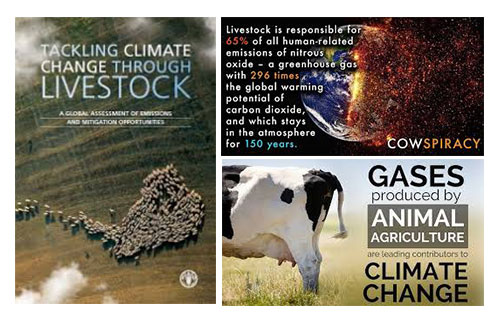UN System Standing Committee on Nutrition (UNSCN) focuses on Climate Change and Nutrition. The meat and dairy based diet produces methane which traps heat in the atmosphere more effectively than carbon dioxide, and contributes more to global warming than the transportation industry.
In April 2017, UNSCN organized a panel on “Climate Change and Nutrition”. The panel presented findings on climate change, diets, nutrition and health. Previously explored linkages between climate change and nutrition revealed that projected temperatures increases, changes in precipitation patterns and the frequency of extreme weather events would lead to reduced agricultural productivity. The link between climate change and nutrition has not received adequate attention by the international community.
Today’s global food system is not sufficient, leaving about 800 million people hungry, 2 billion micronutrient deficient, more than 600 million people obese and 2 billion overweight. It is also one of the main contributors to climate change and environmental degradation. Food production and consumption is responsible for 19 – 29 per cent of all human caused greenhouse gas emissions, up to 70 per cent of the freshwater use, and over 60 per cent of the terrestrial biodiversity loss, with animal based foods being major contributors to these environmental changes. Dietary changes towards more animal based diets and highly processed food can increase agricultural and food greenhouse gas emissions by up to 80 per cent by 2050.
Vegan International educates Governments, other NGOs, and civil society about the relationship between the vegan lifestyle, and reducing climate change. A vegan diet can reduce methane emissions which trap heat in the atmosphere more effectively than carbon dioxide. It is also a more efficient use of scarce resources such as land and water.
The United Nations decade of Sustainable Energy For All (SE4ALL) was launched by UN Secretary General Ban KiMoon on June 5, 2014. This decade promises to transform the global energy landscape. There are three objectives: First, to end extreme poverty, and build shared prosperity through universal access to electricity. All homes will have safe, smoke free cooking and heating. Second, by 2030 over one third of the world’s energy will be from clean, renewable sources, this will make twice as much renewable energy in the global energy mix. Third, climate change will be confronted with clean, efficient, reliable sources of energy, reducing carbon dioxide emissions. The first two years of the Decade of Sustainable Energy For All will focus on women and children. Sustainable energy links Poverty Eradication, Economic Growth, and Healthy Environment. It is central to this agenda that how energy is produced and used changes. (Read More)
